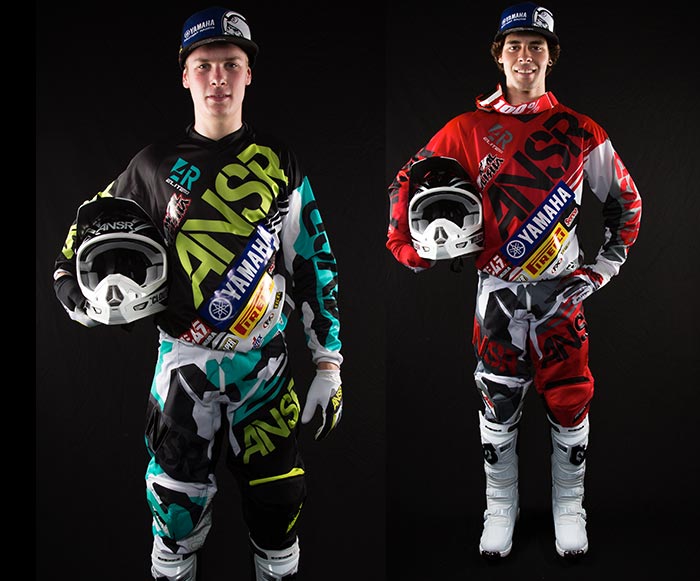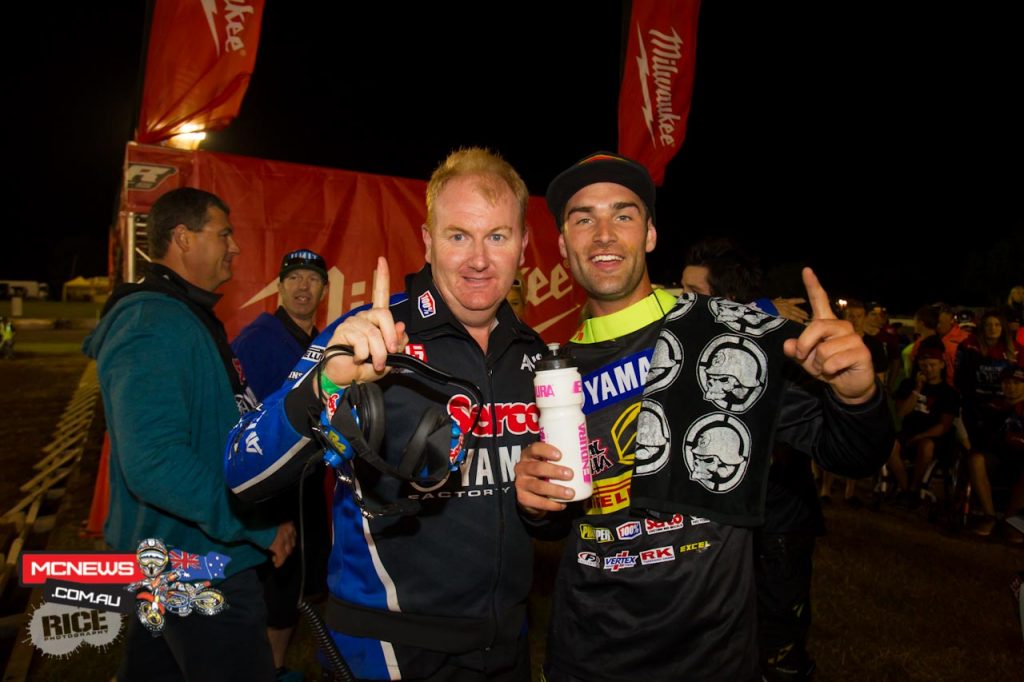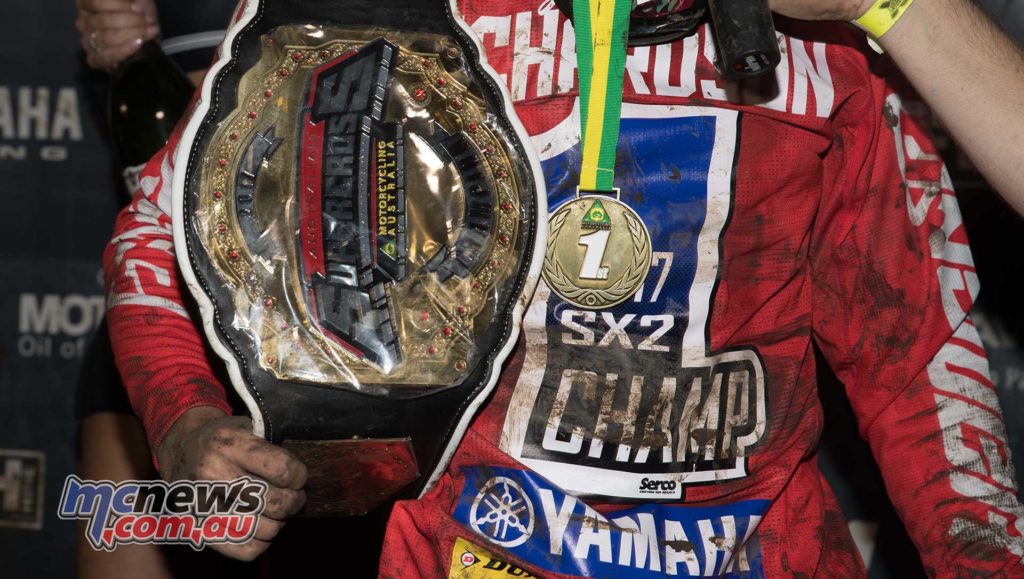Business and racing
The old catch cry line of, ‘Win on Sunday, sell on Monday’ has never been more appropriate for two of Yamaha’s motocross teams. They sell the product they race and race the product they sell and use racing as a vital marketing tool in their respective businesses.
Travis Whitten is owner of WBR Motorcycles in Echuca Victoria. The Whitten family have been involved in racing for a long time now, both as racers themselves and now running a team for Yamaha at the national motocross and supercross championships.
WBR stands for Whitten Brothers Racing and race is what they do. Whether it is a national event or with their costumers in the northern Victorian region, you don’t need to look too hard to find a Whitten at a dirt bike race these days.
Gavin Eales is the owner of Serco, a motorcycle distribution company based in Brisbane. The majority of the products Serco import and distribute are used on their race bikes, everything from the Yoshimura exhausts to the Answer gear on their riders.
Serco stands for Stationary Engine Repair Company and what started out as a little mower servicing shop nearly 50 years ago, is now a major player in the motorcycle industry, at a wholesale, retail and racing level.
Both companies and the people in them have long links to racing in some way, shape or form. Eales and Serco started in drag racing, then became involved in speedway but it was when the four-stroke boom of the late 90’s came, that Serco really grabbed another gear and increased their profile in the motorcycle industry.

For Whitten, the racing bug bit him and his family, then came the pit bike trend and WBR jumped on it with a travelling show of 50cc FMX that toured regional centres and performing at country shows. As the business grew, so did their investment in racing and they now boast one for the few semi-trailers in the pit paddock that not only houses their riders but offers support to their costumer base at several events around the country.
We cornered these two guys to get a quick state of play and how racing has helped their business.
Covid-19 has changed the world, how has your business coped with the pandemic?
TW: “At first, we were very nervous as no-one knew what to expect and the unpredictability of the virus had everyone guessing as to what was going to happen next. But after a few weeks, things seemed to settle down and suddenly people found themselves with a bit more time on their hands and were looking for some recreation to take their mind off things. Dirt bikes proved to be a good way for people to do that and the social distancing didn’t really come into effect. You could simply ride your bike. So, since early April, sales have been strong, and we have been extremely busy keeping up with demand.”
GE: “Like everyone in the industry, we had a month on instability where we weren’t sure what was happening next. We used that time to catch up on a lot of the smaller aspects of the business that get over-looked when you are busy and we got on top of a lot of things. But after that, it has been extremely busy, and we have been pinned. Sales have been strong across all our brands and business is good at the moment.”

Both of you are passionate about racing, why did you get involved with racing and what impact does it have on your business?
TW: “We were passionate first as a competitor, then as a fan so we were just drawn to dirt bikes and the sport in general. As far as an impact goes, it can be hard to measure but my belief is that it has been huge. Since we have become involved in racing we have become the number 1 Yamaha dealer in Victoria and also the number 3 dealer nationally in dirt bikes sales and that comes on the back of our investment in racing and growth of our race team.”
GE: “Serco has always been involved in racing in one form of another. We are a racing family and even now while our main focus is motocross and supercross, we still assist teams and riders in all other disciplines, from drag racing to dirt track. The impact it has is also significant and it even runs through the staff here. They take an interest in what the race team does and our results, it gives the sales team a useable and successful platform to sell our products.”

Can you see the growth of your business as you have become more invested in racing?
TW: “Yes, we can. We started with Yamaha in 2016 and the growth in sales as been huge in that time. People know if they buy a Yamaha through us that we have a lot of knowledge on the product that not just benefits the racer, but also just the regular bike buyer. We are only fairly new to racing at a national level in the grand scheme of things but having the WBR name used at a national level has no doubt helped our profile and in returned bought business to us.”
GE: “As far as impact goes, no doubt racing has been part of the growth of Serco. It’s much more difficult to measure these days but I can recall times when a photo of our race bikes would appear in a magazine with a new part and we would sell 20 of them that day. The digital age makes it harder to follow and maybe a little slower in some ways to see the impact but there is no doubt racing has been a big benefit to Serco.”

When looking at a new product to stock or import, does racing have an input into those decisions of what you would like to sell or stock?
TW: “It does as we only want to use a product that we have faith in and believe it offers a benefit to the rider and a performance gain to the bike. And people also know that when buying that product from us, we can offer the best advice to getting the most from it and we use it because we think it benefits our riders and leads to better results.”
GE: “The product must be good and be able to sell itself so the race team requirements are secondary to us when electing what products to import. From there, the use of that product in the race team becomes part of our marketing strategy. We can to test, work with and gain valuable knowledge of that product in the real world and pass on that info to dealers and riders.”

With racing ground to a halt, what have you been doing with your weekends?
TW: “I’m fortunate in that we just had a baby girl so at the start of the virus and things were shut down, the time away from racing allowed me to spend time with her and my partner and get our new little family settled. But, I also realise just how much I miss racing. As a team we can’t wait to get back to the track and get stuck into it as its been a part of our lives and as a family, we just love doing it.”
GE: “I have actually had the chance to use my boat and get out on the water. During a normal season, we race 15-18 times a year but with nothing on the weekends, I have been able to spend some time on the boat and enjoy the water around South East Queensland.”
























